Japan intensifies infrastructure focus
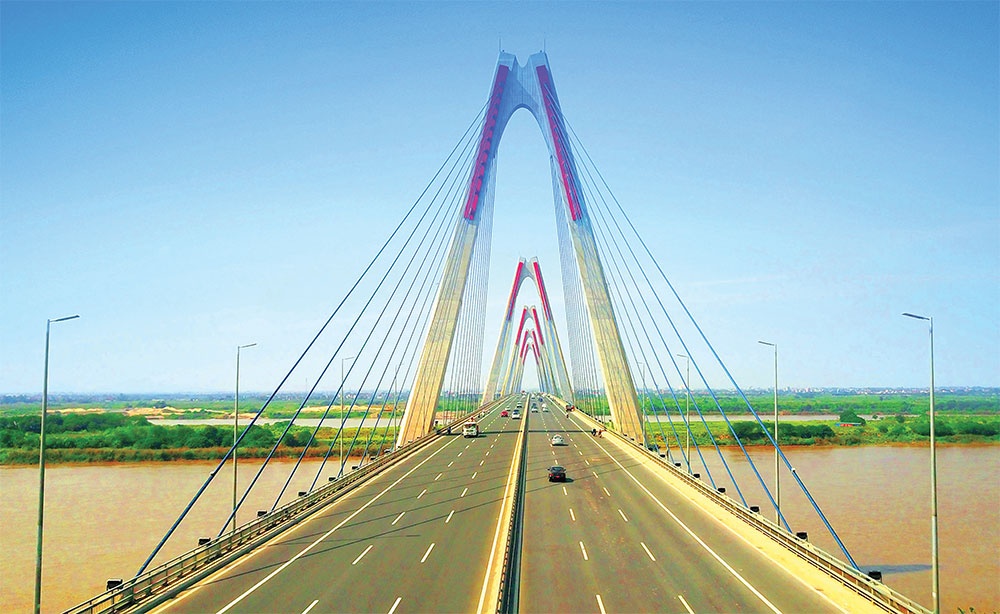 |
| Japan intensifies infrastructure focus, illustration photo: Le Toan |
During Prime Minister Pham Minh Chinh’s bilateral meeting with Japanese counterpart Kishida Fumio in Japan over a week ago, the two nations inked three agreements in which the latter will provide the former with a new official development assistance (ODA) sum worth ¥61 billion (about $500 million).
The money will be used on projects for general post-pandemic socioeconomic recovery and development, improving traffic infrastructure in the southern province of Binh Duong, and ameliorating agricultural development infrastructure in the Central Highlands province of Lam Dong.
“Both leaders have also agreed on the possibility that Japan will provide new-generation ODA for Vietnam with high priorities and simpler and more flexible procedures than before to carry out large-scale strategic infrastructure projects such as the North-South Expressway, urban railways, green transformation, and medicine,” said Minister of Foreign Affairs Bui Thanh Son.
At present, Japan is the largest provider of concessional ODA to Vietnam, with more than ¥3 trillion (about $21.67 billion) accumulatively. Japan’s ODA accounts for almost one-third of bilateral aid to Vietnam.
Yuichi Sugano, chief representative of the Vietnam Office for the Japan International Cooperation Agency (JICA), said that it is now carrying out more than 100 projects in Vietnam in many sectors such as education, healthcare, transport, energy, and agriculture.
“We have been closely cooperating with Vietnam in infrastructure development, from master plan formulation to hardware construction with a medium- and long-term vision. We will continue boosting the cooperation in this direction,” Sugano said.
JICA, together with other donors, has been intensively supporting infrastructure in several sectors in Vietnam. Up to now, about a total length of 3,000km of road in Vietnam have been renovated or constructed with JICA’s cooperation. The renovation of National Highway No.1 under the cooperation of JICA, the World Bank and Asia Development Bank, strengthened the most important traffic corridor along the country.
JICA has intensively worked to improve transport network in the Northern Key Economic Zone, with the renovation of national highways No.10, No.5, and No.18 in parallel with the renovation of Haiphong port. Construction of large-scale infrastructure such as National Highway No.3, Ring Road No.3 of Hanoi, Cai Lan and Lach Huyen deep sea ports, and Noi Bai international terminal all followed a series of cooperation measures with JICA.
In the central and southern key economic zones, Japan’s ODA has been also provided for the construction of the Danang-Quang Ngai expressway, Hai Van tunnel, improvements to Tien Sa port, construction of Cai Mep-Thi Vai port, Ho Chi Minh City-Dau Giay Expressway, Tan Son Nhat International Airport terminal, and urban railway line No.1 in Ho Chi Minh City.
The ASEAN Investment Report 2023 released by the ASEAN Secretariat highlighted Vietnam’s efforts to offer investors opportunities in investing in infrastructure development such as roads, highways, logistics, and seaports.
“Vietnam is open to the private sector with its programmes to attract investment and engage private sector partners in developing infrastructure,” said the report. “In 2021, for instance, Vietnam’s transport ministry announced its infrastructure master plan between then and 2030, which is estimated to cost between $39.4 billion and $62 billion.”
Under the plan, Vietnam will build thousands of miles of new expressways, high-speed rail routes, deepwater ports, and new international airports. The government intends for the country to achieve a cargo transportation capacity of 4.4 billion tonnes per year, and a road transport capacity capable of moving 2.76 billion tonnes of cargo and 9.43 million passengers per year, the report added. Two of the major projects, Dau Giay-Tan Phu Expressway and Gia Nghia-Chon Thanh Expressway, are to be built using the public-private partnership model.
In addition to consolidating ODA cooperation, the Vietnamese and Japanese prime ministers have also vowed to create the best conditions for Japanese investors and businesses to perform in the Vietnamese market. PM Chinh asked Japan to promote a new wave of Japanese investmen here in high technology and renewable energy.
“When it comes to investment cooperation, Japanese enterprises told PM Chinh that they wish to increase investment and business activities in Vietnam in the sectors of processing and manufacturing, agriculture, and wastewater treatment,” Minister Son added.
Vietnam and Japan have also just agreed on boosting bilateral ties in new sectors with enormous potential such as the green energy transition, digital transformation, and reduction of greenhouse gas emissions.
According to Vietnam’s Ministry of Planning and Investment, investment from Japan into Vietnam has risen strongly over the past two years.
Accumulatively as of April 20, Vietnam was home to 5,072 Japanese valid projects with total registered capital of over $69 billion, making Japan the third-largest foreign investor in Vietnam after South Korea ($81.45 billion) and Singapore ($73.04 billion).
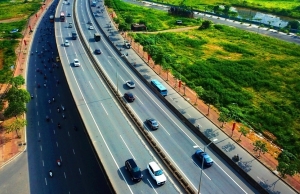 | ASEAN+3 should unlock more capital for sustainable infrastructure COVID-19 has brought severe hardships to peoples and communities across the globe, but for the economies of the Association of Southeast Asian Nations, a resilient recovery is underway. |
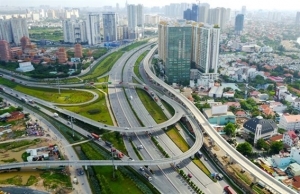 | PPP model needs more balancing, equality for private investors Vietnam's increased demand for infrastructure development in the coming years requires governmental policies that encourage the private sector's participation, said economists and policymakers. |
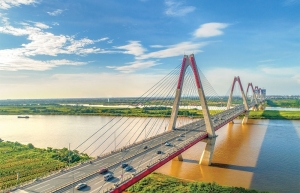 | Resolving the remaining issues in infrastructure investment I first came to Vietnam when the US embargo on Vietnam was lifted in February 1994. Freshfields decided to open an office in Vietnam to focus on infrastructure development and foreign investment work. At the time, Vietnam’s electricity supply was inadequate. |
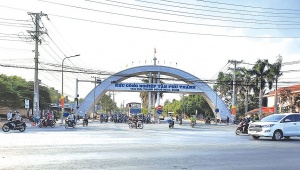 | Hau Giang can become major Mekong region growth engine Hau Giang province in the Mekong delta is set to grow into a major growth engine in the region, leveraging a raft of key infrastructure works intensively in the development pipeline across the province. |
What the stars mean:
★ Poor ★ ★ Promising ★★★ Good ★★★★ Very good ★★★★★ Exceptional
Related Contents
Latest News
More News
- SK Innovation-led consortium wins $2.3 billion LNG project in Nghe An (February 25, 2026 | 07:56)
- THACO opens $70 million manufacturing complex in Danang (February 25, 2026 | 07:54)
- Phu Quoc International Airport expansion approved to meet rising demand (February 24, 2026 | 10:00)
- Bac Giang International Logistics Centre faces land clearance barrier (February 24, 2026 | 08:00)
- Bright prospects abound in European investment (February 19, 2026 | 20:27)
- Internal strengths attest to commitment to progress (February 19, 2026 | 20:13)
- Vietnam, New Zealand seek level-up in ties (February 19, 2026 | 18:06)
- Untapped potential in relations with Indonesia (February 19, 2026 | 17:56)
- German strengths match Vietnamese aspirations (February 19, 2026 | 17:40)
- Kim Long Motor and AOJ Suzhou enter strategic partnership (February 16, 2026 | 13:27)

 Tag:
Tag:



















 Mobile Version
Mobile Version